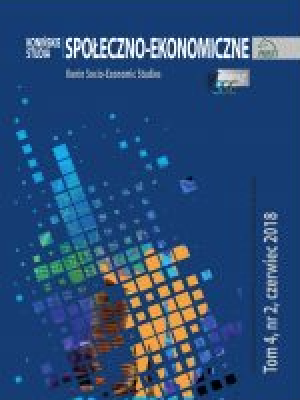Ewolucja sytuacji gospodarczej i pieniężnej Polski w okresie międzywojennym. Analiza krytyczna
The evolution of the economic and monetary situation in Poland in the interwar period. Critical analysis
Author(s): Zbigniew KlimiukSubject(s): Economy, Political history, Social history
Published by: Akademia Nauk Stosowanych w Koninie
Keywords: Polish economy; interwar period; development and economic stagnation; monetary reform; inflation and deflation; monopolisation of production; cartels; investment plan
Summary/Abstract: The article analyzes the development of the economic and monetary situationof Poland in the interwar period (1918−1939). Poland was the only country inwhich at that time there was a statistical reduction in the absolute level ofindustrial production. While global industrial production expanded by over50% between 1913 and 1938, industrial production in Poland in 1938 reachedless than 99% of the level recorded in 1913. Significant (dominant) causes forsuch a situation were the destruction, dismantling and plundering carried outon the Polish territory both during the First World War (by the partitioningpowers) and subsequently in the course of the Polish-Bolshevik war. Theseevents caused the initial level of the economic activity in 1918 to be muchlower than the one recorded in 1913. Political and military events of the period1913−1918 caused an economic activity in Poland to decline by approximately50%. In the cyclical upswings of 1926−1929 and 1936−1938 certainindustries were developing dynamically: e.g. the chemical industry (syntheticfibers and fertilizers), as well as electrotechnical and energy production. Onecan point out to significant achievements of Poland in the 1918-39 period,especially taking into account the serious difficulties faced in the said periodand the conditions and capabilities of the economies at that time. The Polisheconomy managed in the interwar period − despite the initial lack of humanresources, of accumulated experience and tradition − to bring about successfulreconstruction of the country from the state of war-induced destructionand to unify economically and socially diverse areas of Polish territories inheritedafter three partitions. Economic consolidation, administrative unification, development of uniform financial system, establishment a well-working educationsystem, as well as of quite well-developed and progressive social securitysystem, unification of regulations, introduction of progressive social legislation,as well as a number of other important achievements of the state andof territorial self-government have contributed to the positive outcomes ofthe interwar period.
Journal: Konińskie Studia Społeczno-Ekonomiczne
- Issue Year: 4/2018
- Issue No: 2
- Page Range: 155-179
- Page Count: 25
- Language: Polish

